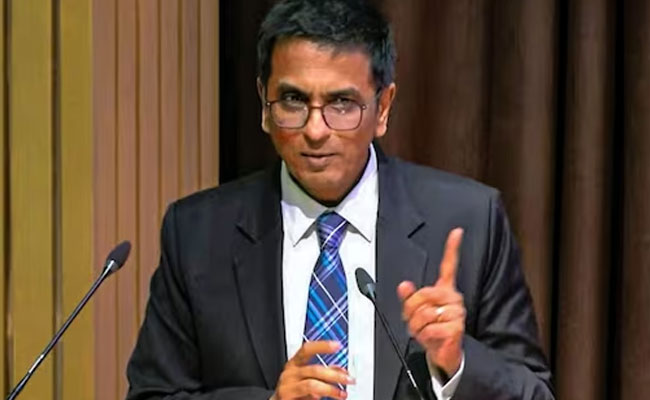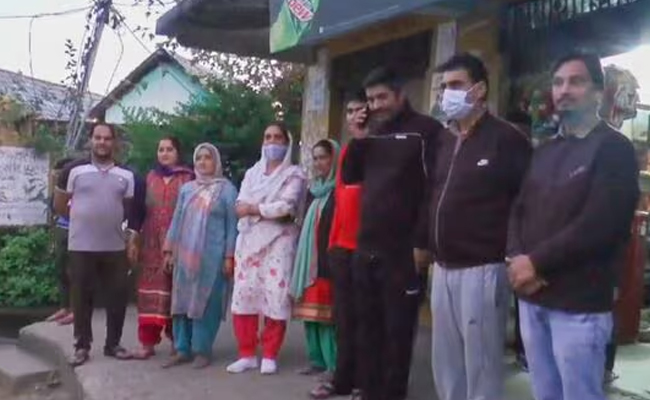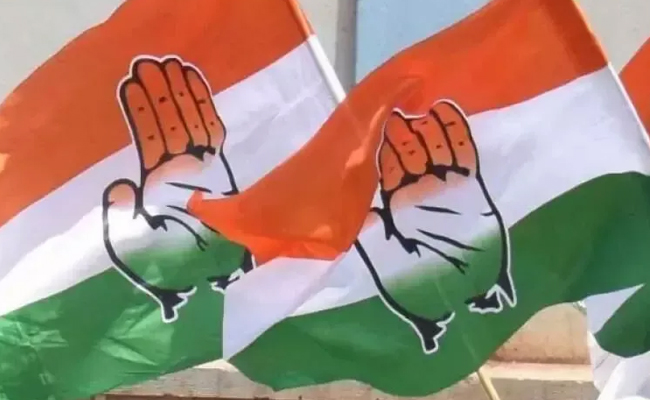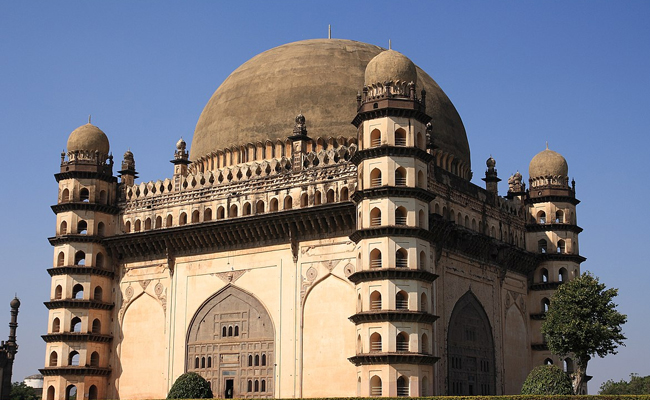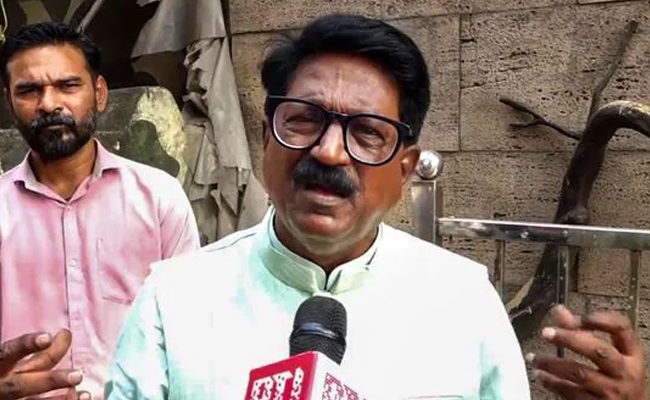New Delhi (PTI): Chief Justice of India D Y Chandrachud on Monday observed that by enacting Article 35A, fundamental rights of equality, liberty to practice profession in any part of the country and others were virtually taken away.
He made the remarks after Solicitor General Tushar Mehta, appearing for the Centre, referred to the contentious provision in the Indian Constitution, saying it gave special rights to only permanent residents of the erstwhile state of Jammu and Kashmir and was discriminatory.
Without naming the two mainstream political parties of the erstwhile state, the Centre told a five-judge bench headed by CJI Chandrachud that citizens have been misguided that the special provisions for Jammu and Kashmir were "not discrimination but a privilege".
"Even today two political parties are before this court defending Article 370 and 35A," the solicitor general told the top court on the 11th day of hearing the litany of pleas challenging the abrogation of the constitutional provision which bestowed special status to the erstwhile state of J-K.
The solicitor general further submitted that the effect of Article 370 was such that by the administrative act of the President and the state government, any part of the Constitution of India with respect to J-K can be amended, altered or even "destroyed" and new provisions can be created.
He said that after the 42nd amendment, the words "Socialist" and "Secular" were not made applicable to Jammu and Kashmir.
"Even the word "Integrity" is not there. Fundamental duties were not there, which exists in the Indian Constitution.
"The Jammu and Kashmir Constitution provided for a separate provision for permanent residents of J-K in Article 7. It removed references to Scheduled Tribes from Article 15(4). Other Articles 19, 22, 31, 31A and 32 were applied with some modifications ," Mehta said.
On Article 35A, he said it was discriminatory, to say the least.
"Under the provision (A-35A), people like sanitation workers working in the erstwhile state for decades were not given equal rights like that of permanent residents of J-K.
"This discrimination continued till the provision was abrogated in 2019. Non-permanent residents of J-K were not able to purchase lands, could not avail scholarship, employment in the state government," he said, urging the court to look into issues from the "eyes of people".
CJI Chandrachud deciphering Mehta's submissions said that by enacting Article 35A, "you virtually took away fundamental rights" of equality, liberty to practice profession in any part of the country and even granted immunity from legal challenges and the power of judicial review.
The Solicitor General said, "People were misguided by those - who were supposed to guide them - that this was not a discrimination but a privilege. Even today two political parties are before this court defending Article 370 and 35A."
Mehta submitted that the Constitution of Jammu and Kashmir needed to be repealed because it could not co-exist with the Indian constitution.
The apex court also prima facie agreed with the Centre's submission on pleas challenging the abrogation of Article 370 that the Constitution of Jammu and Kashmir is "subordinate" to the Indian Constitution, which is on a higher pedestal.
The bench, however, did not seem to agree with the plea that the Constituent Assembly of the erstwhile state, which was disbanded in 1957, was in reality a legislative assembly.
Let the Truth be known. If you read VB and like VB, please be a VB Supporter and Help us deliver the Truth to one and all.
Hamirpur: The residents of Sammoo village in Hamirpur district located in Himachal Pradesh are continuing a centuries-old tradition of not celebrating Diwali. No houses are lit during the festival, no special dishes are prepared, and no sounds of crackers are heard.
This is an ancient custom that people have been following for ages due to the fear of a curse from a woman who committed Sati on Diwali, according to a PTI report.
The legend goes that, many years ago, the woman who had left for her parent's home to celebrate Diwali received news that her husband, a soldier in the king's court, had died. The woman, who was pregnant, was devastated and burnt herself on her husband's pyre. It is believed she cursed the villagers, declaring that they would never again be able to celebrate Diwali.
As a result, the village has not celebrated the festival since, with elders reportedly warning younger generations that celebrations would invite misfortune, disaster, and deaths.
Bhoranj panchayat pradhan Pooja Devi stated that since she got married and moved to this village, she has never witnessed Diwali being celebrated. “Even if the villagers settle outside, the curse of the women won’t leave them. Some years ago, a family from the village settled far away were preparing some local dishes for Diwali when their house caught fire. The people of the village only worship Sati and light diyas in front of her,” Pooja Devi was quoted as saying by the news agency.
The report also cited another village elder, who has lived through more than 70 Diwalis without celebration, mentioning that whenever someone attempts to celebrate, tragedy strikes the village.
“For hundreds of years, people have refrained from celebrating Diwali. On the day of Diwali, if a family, even by mistake, bursts crackers and makes dishes at home, then disaster is sure to happen,” the report quoted another villager.
The people in the village have tried a lot of measures, such as havans and yagyas, to get rid of the curse. However, nothing has reportedly worked.

